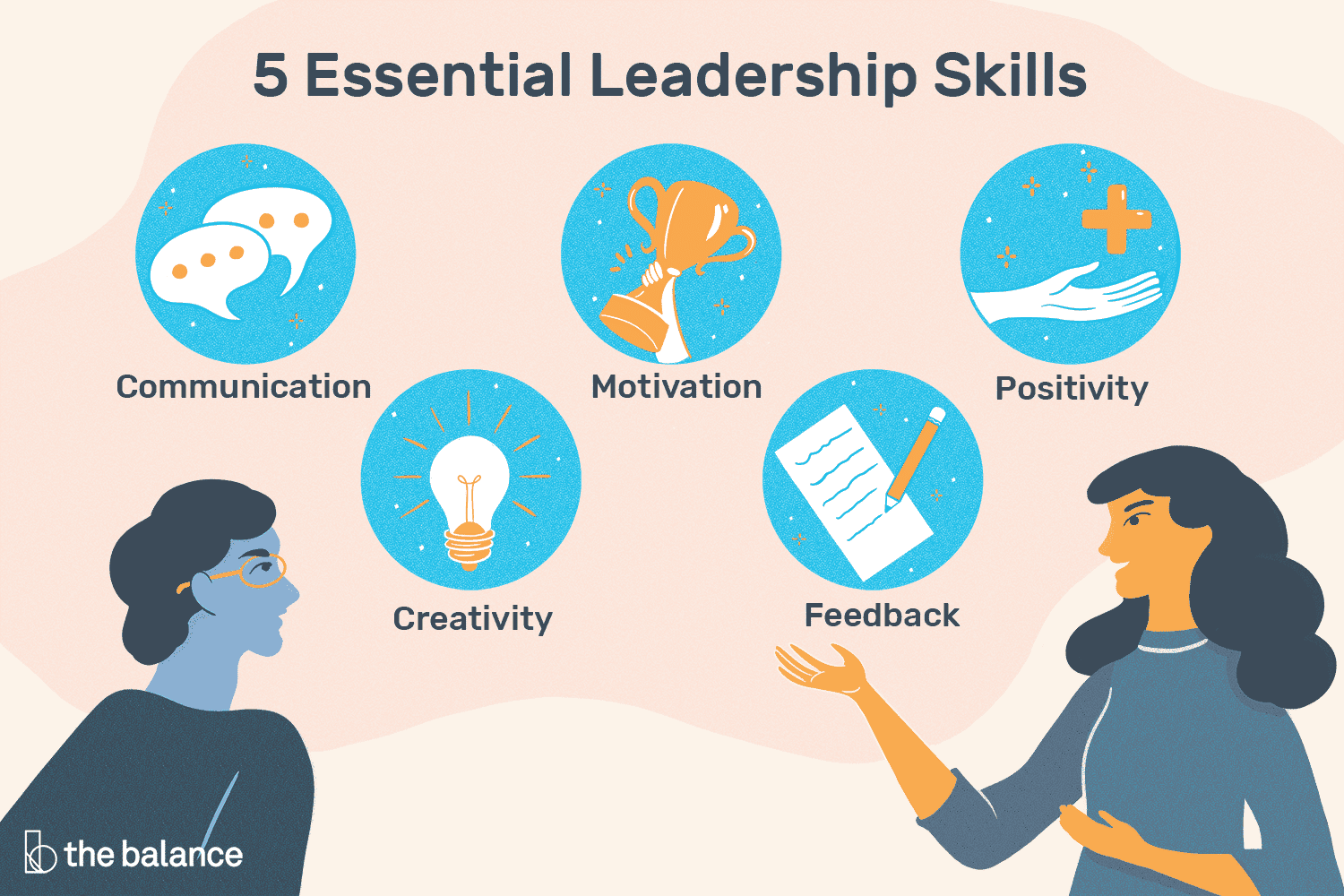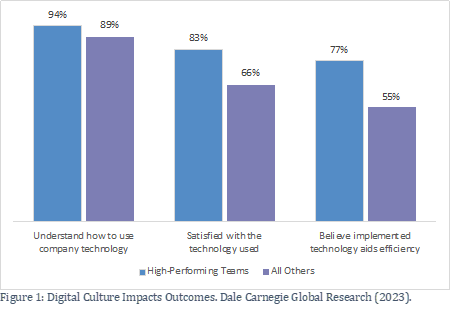Essential Leadership Skills
Essential leadership skills include effective communication and the ability to motivate and inspire others. Leadership skills are crucial in today’s fast-paced and competitive business environment.
Whether you are leading a team, managing a project, or running an organization, having the right leadership skills is essential for success. Effective leaders possess a range of skills that enable them to guide and inspire their team members. These skills include effective communication, the ability to motivate and inspire others, the capacity to make tough decisions, and the skill to manage conflicts and solve problems.
Moreover, good leaders have a clear vision and can set goals and objectives that drive their team forward. We will explore the essential leadership skills that every leader should possess and how you can develop these skills to become a more effective and influential leader.

Credit: www.aihr.com
Importance Of Leadership Skills
Effective leadership skills play a crucial role in the success of any organization. Strong leaders inspire and motivate their teams to achieve their full potential, drive innovation, and foster a positive work environment. Let’s explore the importance of leadership skills in building strong teams and driving innovation.
Building Strong Teams
A strong team is the backbone of a successful organization. A leader with exceptional team-building skills understands the strengths and weaknesses of each team member and assigns tasks accordingly, creating a harmonious work environment. By promoting open communication, trust, and collaboration, teams become more efficient and productive.
Leaders who prioritize team building also inspire loyalty among employees. When team members feel valued and supported, they are more likely to remain dedicated and invested in the success of the organization. This fosters a positive culture where everyone feels motivated to contribute their best.
Driving Innovation
Innovation is the key to staying ahead in today’s rapidly evolving business landscape. Effective leaders encourage and foster a culture of innovation within their teams. They promote an environment where employees feel comfortable sharing ideas, taking risks, and thinking outside the box.
By placing emphasis on creativity and continuous learning, leaders inspire their teams to seek innovative solutions to everyday challenges. This not only drives growth but also helps the organization adapt and thrive in an ever-changing market. The ability to drive innovation sets apart successful leaders from the rest.
Moreover, strong leaders lead by example. They consistently demonstrate their commitment to innovation by embracing new technologies, seeking improvements, and encouraging experimentation. By championing innovation, leaders inspire their teams to push boundaries and develop groundbreaking solutions.
In conclusion, leadership skills are indispensable for building strong teams and driving innovation. A skilled leader understands the value of team collaboration and creates an environment that nurtures creativity and productivity. By prioritizing these skills, organizations can elevate their performance, attract top talent, and remain competitive in today’s dynamic business landscape.

Credit: jasandiego.org
Effective Communication
Effective communication is a crucial skill for leaders as it underpins all other aspects of leadership. Being able to clearly convey ideas, actively listen to others, and communicate with conciseness are all essential components of effective communication.
Active Listening
Active listening is a fundamental aspect of effective communication. It involves giving full attention to the speaker, understanding their message, and providing feedback to ensure clarity and comprehension. By practicing active listening, leaders can foster better relationships, build trust, and gain valuable insights.
Some key techniques for active listening include:
- Maintaining eye contact to show attentiveness.
- Nodding and using affirmative expressions to indicate understanding.
- Paraphrasing the speaker’s thoughts to demonstrate comprehension.
- Asking open-ended questions to encourage further explanation.
Clear And Concise Messaging
Clear and concise messaging is essential for effective communication in leadership. When leaders are able to articulate their thoughts and ideas clearly, their team members are more likely to understand and align with their goals and objectives. Clarity eliminates confusion and promotes productivity, while conciseness ensures that information is communicated in a succinct and easily digestible manner.
Here are some strategies for achieving clear and concise messaging:
- Avoiding jargon and using simple language that is easily understood by everyone.
- Organizing thoughts logically and presenting information in a structured manner.
- Using bullet points or numbered lists to highlight key points.
- Keeping messages focused and eliminating unnecessary details.
By incorporating active listening and clear, concise messaging into their communication style, leaders can enhance their effectiveness and create a more collaborative and productive work environment.
Decision Making
Effective decision making is at the heart of strong leadership. Leaders are faced with a myriad of choices on a daily basis, and their ability to make sound decisions can have a significant impact on the success of their teams and organizations. The decision-making process involves carefully considering options, evaluating risks, and choosing the best course of action. To become a skilled decision-maker, leaders must cultivate analytical thinking and problem-solving skills.
Analytical Thinking
Analytical thinking is the ability to break down complex problems into smaller, more manageable parts. It involves examining information, identifying patterns, and drawing logical conclusions. Leaders with strong analytical thinking skills are able to approach decision-making with a systematic and rational mindset. They gather relevant data, analyze it objectively, and make informed choices based on evidence rather than personal biases.
Problem Solving
Problem-solving is an essential skill for effective decision-making. It involves identifying obstacles, brainstorming possible solutions, and evaluating their feasibility. Leaders who excel in problem-solving can overcome challenges and seize opportunities. They approach problems with a positive attitude, viewing them as learning opportunities rather than roadblocks. By utilizing their analytical thinking skills, leaders can analyze the root causes of problems and develop creative solutions that address those underlying issues.
In conclusion, decision making is a critical aspect of effective leadership. By cultivating analytical thinking and problem-solving skills, leaders can enhance their ability to make informed choices that benefit their teams and organizations.

Credit: teambuilding.com
Emotional Intelligence
Emotional intelligence is a crucial leadership skill that enables leaders to understand and manage their own emotions as well as those of their team members. It plays a fundamental role in creating a positive work environment and fostering effective communication and decision-making.
Self-awareness
Emotional intelligence is a critical leadership skill that can truly set apart great leaders from good ones. Being emotionally intelligent means having the ability to recognize and manage your own emotions and the emotions of others. It encompasses skills such as self-awareness, empathy, and effective communication.Self-awareness
Self-awareness refers to the ability to recognize and understand our own emotions, strengths, weaknesses, and values. It is the foundation of emotional intelligence and an essential leadership skill. When leaders are self-aware, they are better equipped to understand and manage their own emotions, as well as the impact their behaviors have on others.Being self-aware allows leaders to:
- Recognize and regulate their emotional reactions to different situations.
- Engage in self-reflection and learn from their experiences.
- Understand their own strengths and weaknesses, enabling them to make better decisions.
- Be aware of how their emotions can affect others and adjust their behavior accordingly.
Empathy
Empathy is the ability to understand and share the feelings of others. It involves putting yourself in someone else’s shoes and seeing things from their perspective. Empathetic leaders are better able to connect with their team members, build trust, and create a positive work environment.When leaders demonstrate empathy, they:
- Listen actively and attentively to their team members’ concerns and ideas.
- Show genuine care and concern for the well-being of others.
- Seek to understand the emotions and motivations behind their team members’ actions.
- Provide support and encouragement when team members are facing challenges.
By practicing empathy, leaders can foster a culture of collaboration, enhance team morale, and inspire greater productivity.
Overall, emotional intelligence, with its components of self-awareness and empathy, plays a vital role in effective leadership. By cultivating these essential skills, leaders can build stronger relationships, make better decisions, and empower their teams to achieve success. Embracing emotional intelligence not only benefits the leaders themselves but also has a positive impact on the entire organization.Adaptability And Flexibility
In today’s rapidly changing business landscape, leaders need to possess the essential skills of adaptability and flexibility to navigate through various challenges and uncertainties. These skills enable leaders to effectively manage change and embrace ambiguity, allowing them to steer their teams towards success.
Managing Change
In order to lead their teams through periods of change, leaders must be adept at managing change effectively. This involves:
- Clear Communication: Keeping team members informed about the reasons for change and providing frequent updates on progress.
- Emotional Intelligence: Understanding and empathizing with team members’ emotions during times of change, and providing support and guidance as needed.
- Flexibility: Being open-minded and willing to adjust plans and strategies as new information emerges during the change process.
- Leading by Example: Demonstrating a positive attitude towards change and showing resilience in the face of obstacles.
Embracing Ambiguity
Ambiguity is an inherent part of many business situations, especially in today’s complex and uncertain environment. Leaders who can embrace ambiguity create a positive culture that encourages:
- Adventurous Thinking: Encouraging team members to explore new ideas and experiment with different approaches.
- Risk-Taking: Promoting a safe environment where calculated risks are seen as learning opportunities.
- Flexibility: Maintaining flexibility in decision-making and being open to new perspectives and information.
- Resilience: Building resilience in team members to adapt and thrive in ambiguous situations.
Frequently Asked Questions On Essential Leadership Skills
What Are The 7 Skills Of Effective Leadership?
The 7 skills of effective leadership include communication, decision-making, problem-solving, goal-setting, adaptability, empathy, and integrity. These skills are essential for leading a team or organization successfully.
What Are The 7 Leadership Qualities Of Great Leaders?
Great leaders possess seven key leadership qualities: vision, integrity, resilience, empathy, communication, decisiveness, and adaptability. They have a clear vision, act with honesty and transparency, rebound from challenges, show understanding towards others, effectively convey their message, make prompt decisions, and adjust to change.
What Are The Top 3 Leadership Skills?
The top three leadership skills are communication, decision making, and adaptability. Good communication helps to convey ideas and directions effectively. Strong decision-making skills enable leaders to make sound judgments and take appropriate actions. Adaptability allows leaders to respond to changes and challenges with flexibility.
Conclusion
Leadership skills are truly essential in today’s ever-changing world. As leaders, we must continually develop and hone our skills to inspire, guide, and empower our teams. By possessing qualities such as effective communication, empathy, adaptability, and decisiveness, we can navigate challenges and drive success.
Remember, leadership is not static; it evolves as we learn and grow. So, let’s keep learning, practicing, and evolving our leadership skills to make a positive impact in both professional and personal realms. Embrace the journey of leadership and unlock your full potential.


